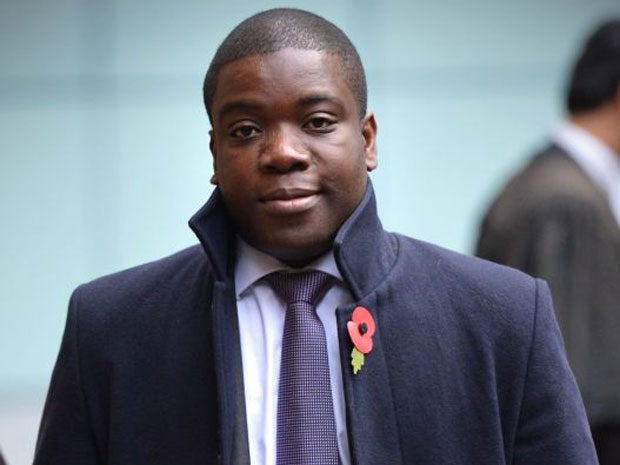Rogue UBS trader Kweku Adoboli claims banking hasn't changed since he was jailed. Should we believe him?
The jailed former UBS banker has given an interview to the BBC as he fights deportation

When it comes to rogue traders Kweku Adoboli is in the Premier League of infamy alongside Jerome Kerviel (Société Générale) and Nick Leeson (Barings).
Should we be listening when, in an interview with the BBC, the jailed former UBS banker opines that it won’t be long before the bad boys’ club is admitting new members?
Adoboli, now out on parole, claims “nothing has changed" since he left the industry in 2012. Traders are still being pushed to make money “no matter what”. Corners are still being cut.
It’s not hard to see what the banking industry’s response to all this might be. He’s been in stir. He’s been out of the industry for years. How can he know?
Then there is the question of his motivation. He’s a convicted fraudster fighting a deportation order. He’s not exactly going to say everything’s hunky dory in an interview designed to garner publicly and sympathy, is he?
The reality is probably somewhere in between their view and that of Adoboli, who has been occupying himself by speaking at conferences for compliance professionals and living with friends while battling to stay in the country.
It is certainly true that the rules have been tightened since he was merrily booking fictitious trades while running up a £1.4bn tab that would shake his employer to its core.
Like many in his position he claims his bosses knew what he was up to. They claim otherwise.
Efforts have at least been made to ensure managers find it harder to duck taking responsibility when things go wrong on their watch through the Financial Conduct Authority’s Senior Managers Regime.
The “presumption of responsibility” - it would have forced top bankers to prove they had done everything in their power to prevent wrong doing on their watch - was ultimately watered down amid claims that it would have made bankers “guilty until proven innocent”.
Regulators will have to prove negligence on the part of bosses under the revised "duty of responsibility" if another Kweku Adoboli makes merry. Nonetheless, this should still encourage a greater degree of care. Regulators have got tougher, fines bigger.
But the fact remains that people, and institutions, will still break rules however tough you make them. Just look at Adoboli. He was able to commit his crimes, in part, because UBS failed to obey guidelines imposed by the Financial Services Authority in the wake of the Kerviel affair. It was fined nearly £30m for “systems and controls” as a result.
Adoboli claims the culture of the industry hasn’t fundamentally changed. Well, duh. The banking industry isn’t populated by altruistic souls who want to make the world a better place. It never will be. It is staffed by people who want to make money.
When young, clever, predominantly male, traders are put under heavy pressure to do just that by executives who make gaudy, sometimes unrealistic, promises to shareholders and then have to live up to them there is always the temptation to break or bend rules.
Although rogue trading scandals of the scale of Adoboli's are still relatively rare, the dark heart of banking still beats. The reforms will be judged a success if they make them rarer. But they won’t stop them.
Join our commenting forum
Join thought-provoking conversations, follow other Independent readers and see their replies
Comments